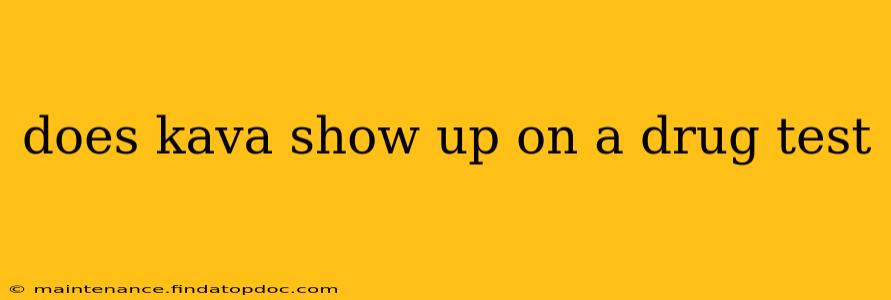Does Kava Show Up on a Drug Test?
Kava, a beverage made from the roots of the Piper methysticum plant, is increasingly popular for its purported relaxing and mood-boosting effects. However, a common concern among users is whether kava use will be detected on a standard drug test. The answer is complex and depends on several factors. Generally, kava does not show up on standard drug tests. These tests typically screen for common drugs of abuse like opioids, cannabinoids, cocaine, amphetamines, and benzodiazepines. Kava's chemical composition doesn't include these substances.
However, this doesn't mean you're completely in the clear. Let's explore some nuances:
What Kinds of Drug Tests Exist?
Understanding the different types of drug tests is crucial. The most common are:
- Urine tests: These are the most prevalent type of drug test and screen for a panel of common drugs. Kava is unlikely to trigger a positive result here.
- Blood tests: Blood tests can detect a wider range of substances than urine tests, but even then, kava's components aren't typically included in standard panels. A specialized toxicology test might be necessary to detect kava, but this is rarely performed.
- Hair follicle tests: These tests have a much longer detection window than urine or blood tests. While it's theoretically possible for kava metabolites to show up in a hair follicle test, this is highly improbable and not currently supported by widespread research.
- Saliva tests: Similar to urine tests, saliva tests are generally not designed to detect kava.
What if My Drug Test is Positive?
If you receive a positive result on a drug test despite not using any common illicit substances, there are several possibilities:
- False positive: Though rare, false positives can occur due to cross-reactivity with other substances or errors in the testing process.
- Contamination: The sample may have been contaminated during collection or testing.
- Specialized testing: As mentioned earlier, a specialized toxicology test might be necessary to detect unusual substances. This would be an uncommon circumstance.
Could Kava Interact With Other Medications?
While kava itself doesn't usually show up on standard drug tests, it's essential to consider potential interactions with other medications. Kava has sedative properties and can interact negatively with certain drugs, including:
- Sedatives and tranquilizers: Combining kava with these medications can significantly increase drowsiness and impair cognitive function.
- Muscle relaxants: Similar to sedatives, kava's additive effects with muscle relaxants could be dangerous.
- Hepatotoxic drugs: Kava has been associated with rare cases of liver damage. Combining it with other hepatotoxic drugs increases this risk.
Always consult a healthcare professional before using kava, especially if you're taking other medications. They can assess potential interactions and advise you accordingly.
What are the Potential Side Effects of Kava?
While generally considered safe when used responsibly, kava can cause side effects like:
- Drowsiness: This is a common side effect and can impact daily activities.
- Nausea and vomiting: These are less common but possible side effects.
- Skin reactions: In rare cases, allergic skin reactions can occur.
- Liver damage: This is a serious but rare side effect, mostly associated with long-term, high-dose consumption.
It's crucial to use kava responsibly and in moderation. Consult a doctor if you experience any adverse effects.
In conclusion, while kava is unlikely to produce a positive result on a standard drug test, it's essential to be aware of its potential interactions with other medications and its potential side effects. Always prioritize responsible use and seek professional advice when necessary.
